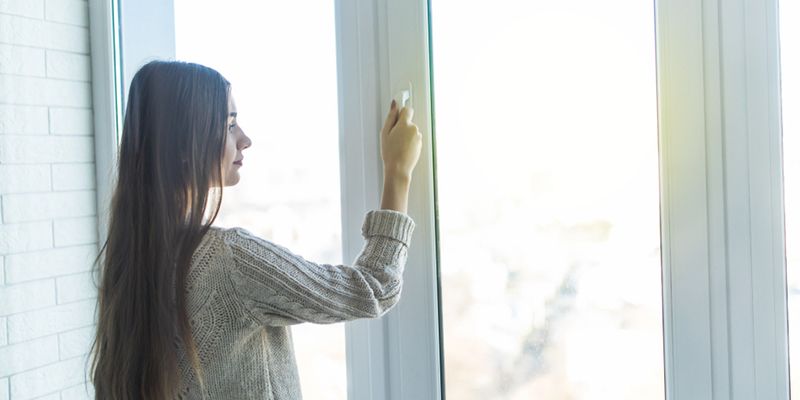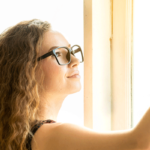
Complete Guide to Residential Glass Coating in 2024
In an age where sustainability and efficiency are at the forefront of every innovation, glass coating technology has emerged as a game-changer for both residential and commercial properties. This comprehensive guide will delve into the intricacies of glass coating, its benefits, types, application processes, and impact on energy efficiency and sustainability. We’ll also highlight how HeatCure Glass Coating Solutions stands out with its cutting-edge technology and exceptional performance.
What is Glass Coating?
A glass coating is a protective layer applied to glass surfaces to enhance their properties. This transparent layer can significantly improve the durability, energy efficiency, and aesthetic appeal of windows and glass facades. It involves the use of advanced materials and technologies to provide a range of benefits, from UV protection to self-cleaning capabilities.
Types of Glass Coatings
- Reflective Coatings: These coatings are designed to reflect a significant portion of solar radiation, reducing heat gain and improving energy efficiency. They are commonly used in commercial buildings with large glass facades.
- Low-E Coatings (Low Emissivity): Low-E coatings minimize the amount of infrared and ultraviolet light that passes through glass without compromising the amount of visible light. This helps in maintaining a comfortable indoor temperature and reducing energy costs.
- Tinted Coatings: Tinted coatings involve the use of colored films to reduce glare and heat from the sun. They are often used in regions with intense sunlight to enhance comfort and reduce cooling loads.
- Self-Cleaning Coatings: These coatings use photocatalytic and hydrophilic processes to break down organic dirt and allow rainwater to wash it away, keeping the glass clean with minimal maintenance.
- Security Coatings: These are designed to strengthen the glass, making it more resistant to breakage and enhancing security against impacts and intrusions.
Benefits of Glass Coating
HeatCure Glass Coating Solutions
HeatCure Glass Coating Solutions takes glass coating to the next level with its advanced technology and exceptional performance. Here’s how:
- Energy Efficiency: HeatCure’s coating blocks 80% of the heat that would otherwise pass through glass, significantly reducing the need for air conditioning and lowering energy bills.
- UV Protection: With HeatCure, you get a coating that blocks 99% of harmful UV rays. This protects interiors from fading and damage, and safeguards occupants from potential health risks, including skin cancer.
- Enhanced Durability: HeatCure’s coatings are designed to last, offering a warranty of 10 to 12 years. This ensures long-term protection and performance.
- Aesthetic Appeal: The transparent nature of HeatCure’s glass coating maintains the visual clarity of windows while providing superior protection. The coating has a visual light transmission (VLT) of 78%, allowing ample natural light while blocking harmful rays.
- Reduced Maintenance: HeatCure’s application process includes cleaning, priming, and coating, ensuring a perfect finish. After application, it’s recommended not to clean the glass for 20 to 25 days to allow the coating to fully set.
Application Process
The application of HeatCure’s glass coatings involves several precise steps to ensure optimal performance and durability:
- Surface Preparation: The glass surface is thoroughly cleaned to remove any dust, grease, or contaminants that could affect the adhesion of the coating.
- Priming: The surface is then primed to enhance the bond between the glass and the coating.
- Application: The coating, which is an 8-micron layer liquid insulator, is applied using advanced techniques to ensure uniform coverage and optimal performance.
- Curing: After application, the coating needs time to fully cure. It is recommended not to clean the glass for 20 to 25 days post-application to ensure the coating sets properly.
- Quality Control: Once cured, the coated glass undergoes rigorous quality checks to ensure it meets the desired specifications and performance standards.
Impact on Sustainability
HeatCure’s glass coatings play a crucial role in promoting sustainability in building design and operation:
- Reduced Energy Consumption: By blocking 80% of infrared rays, which account for 53% of sunlight and are responsible for heat, HeatCure coatings help maintain indoor temperatures, reducing the need for heating and cooling, and thus lowering carbon footprints.
- Longevity: Coated glass is more durable and resistant to environmental factors, reducing the need for frequent replacements and minimizing waste.
- Resource Efficiency: Improved energy efficiency translates to reduced reliance on fossil fuels and a greater emphasis on sustainable energy sources.
Conclusion
Glass coating technology represents a significant advancement in building materials, offering a multitude of benefits that extend beyond aesthetics. HeatCure Glass Coating Solutions, with its use of Japanese Nano Glass coating technology and a warranty of up to 12 years, stands out as a leader in this field. From energy efficiency and UV protection to enhanced durability and sustainability, HeatCure’s applications are vast and varied.
Whether you are a homeowner looking to improve the comfort and efficiency of your living space or a business aiming to enhance the performance and appearance of your commercial property, understanding the potential of HeatCure glass coatings can help you make informed decisions that benefit both your property and the environment.



Comment (0)